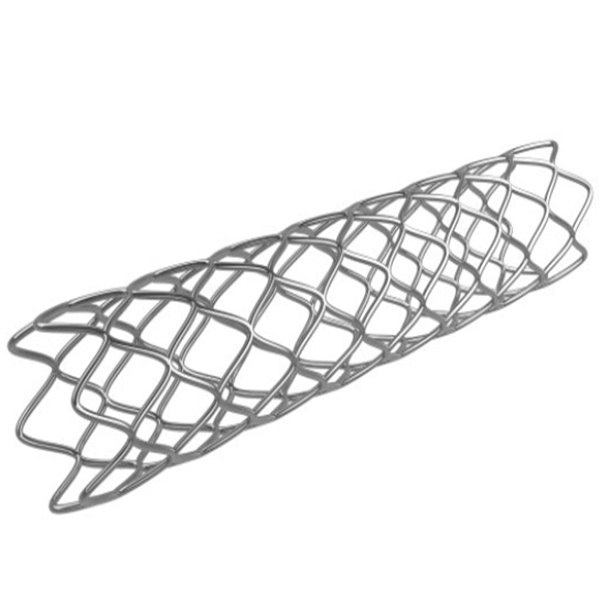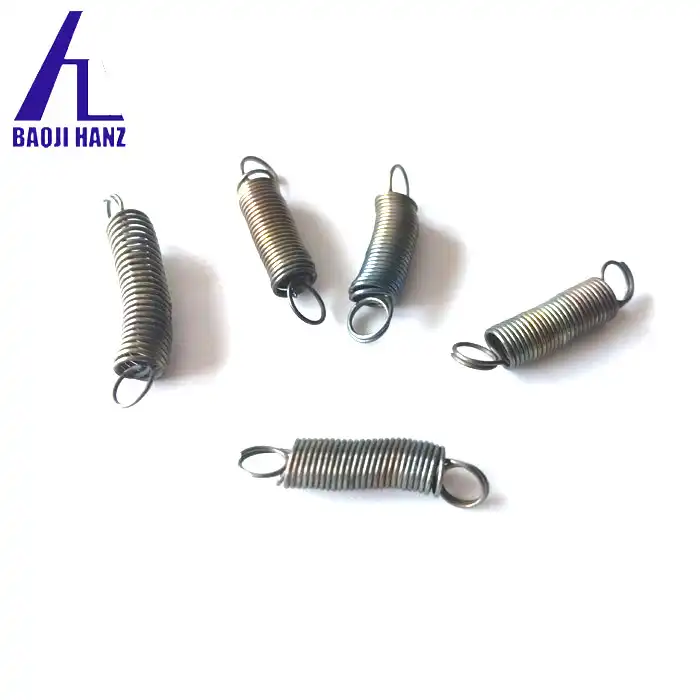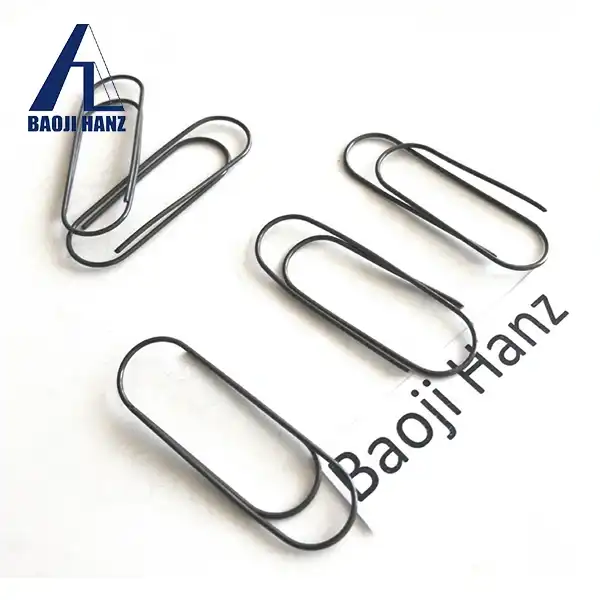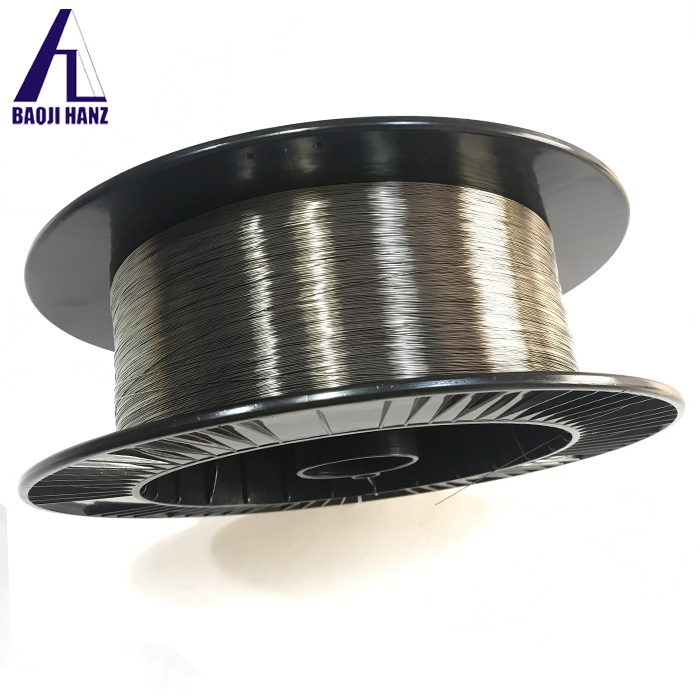Baoji Hanz Metal Material Co., Ltd.: Your Trusted Nitinol Stent Frame Manufacturer & Supplier
Nitinol Stent Frame is specialized medical devices designed to provide structural support to various bodily lumens, such as arteries and veins. Constructed from a nickel-titanium alloy, these stent frames leverage the unique properties of nitinol—such as superelasticity and shape memory—to deliver reliable and flexible support. The frames are engineered to expand and conform to the shape of the vessel, ensuring a secure fit and maintaining proper vessel patency. Our products are manufactured with precision to meet stringent medical standards, making them ideal for a range of vascular and structural applications.

Nitinol Stent Frame Specifications
| Parameter | Details |
|---|---|
| Material | Nitinol (Nickel-Titanium Alloy) |
| MOQ | 10pcs |
| size | Customer Size(The drawings need to be sent before the consultation)<br> |
| Density | 6.345g/cm³ |
| Application | Medical |
| Feture | Superelastic and shape memory |
| Operating Temperature | 37°C (Body Temperature) |
Application Areas
Our products are versatile and used in various medical scenarios to provide structural support. Key application areas include:
Cardiology: In the treatment of coronary artery disease, it support narrowed arteries after angioplasty. Their superelastic properties ensure they can navigate complex arterial pathways and maintain vessel openness.
Peripheral Vascular Disease: These frames are used to support peripheral arteries, preventing restenosis and improving blood flow to the limbs. Their flexibility allows for placement in tortuous or challenging vascular environments.
Urology: In urological procedures, Our products are used to support the ureter and prevent blockage, facilitating the flow of urine and aiding in the treatment of conditions such as ureteral strictures and kidney stones.
Gastroenterology: For gastrointestinal tract conditions, these stent frames help maintain luminal patency, treating esophageal strictures and other obstructions that affect normal digestive function.
Pulmonology: In the management of airway obstructions, Our products are employed to keep airways open, ensuring proper ventilation and respiratory function in patients with compromised airways.
Features
Superelasticity: Offers excellent flexibility and the ability to return to the original shape, ensuring a reliable fit in various anatomical locations.
Shape Memory Effect: Conforms to the vessel or lumen shape, providing stable and consistent support.
High Strength: Provides robust radial force to keep vessels open and support various medical conditions.
Biocompatibility: Made from materials that are well-tolerated by the body, minimizing the risk of adverse reactions.
Ease of Use: Designed for smooth deployment via catheter-based systems, ensuring effective placement and expansion.
Production Technology
The manufacturing process of our products involves several advanced techniques to ensure high quality:
Material Preparation: Nitinol alloy is prepared and processed to achieve the required mechanical properties, including superelasticity and shape memory.
Frame Fabrication: Precision cutting and forming technologies are used to create the stent frames according to specific designs and dimensions.
Heat Treatment: The frames undergo a controlled heat treatment process to optimize their superelastic properties and shape memory effect.
Sterilization: Each stent frame is sterilized using gamma radiation or ethylene oxide to ensure safety and prevent contamination before use.
Quality Control
Quality control is integral to our manufacturing process, ensuring that each nitinol stent frame meets the highest standards:
Material Testing: Assessing the nitinol alloy’s chemical composition and mechanical properties to ensure it meets specifications.
Dimensional Inspection: Verifying the dimensions and tolerances of the stent frames to ensure they are within required specifications.
Performance Testing: Evaluating the frames’ flexibility, strength, and expansion characteristics under simulated body conditions.
Sterility Testing: Ensuring that all frames are free from microbial contamination to ensure they are safe for medical use.
Manufacturing Technique

Transportation

FAQ
Q: What are the advantages of our product over traditional stents?
A: It offer superior flexibility, shape memory, and strength compared to traditional stents, allowing for better adaptability and reliable support in various anatomical locations.
Q: How are our product deployed?
A: Nitinol stent frames are typically delivered via catheter-based systems and can be either balloon-expandable or self-expanding, depending on the design.
Q: Are nitinol stent frames suitable for long-term implantation?
A: Yes, Our products are designed for long-term use and are made from biocompatible materials that are well-tolerated by the body.
Q: Can our product be customized for specific medical needs?
A: Yes, we offer custom solutions to meet specific requirements. Please contact us for more information about customization options.
Q: How can I place an order or request more information?
A: For orders or additional information, please contact us at baojihanz-niti@hanztech.cn. We are ready to assist with your needs and provide tailored solutions.
Contact Us
Baoji Hanz Metal Material Co., Ltd. is a leading manufacturer and supplier of nitinol stent frame. We offer a large inventory, comprehensive certifications, and prompt delivery. For custom solutions or further inquiries, please reach out to us at baojihanz-niti@hanztech.cn.










_1749798209934.webp)
.webp)
.webp)
